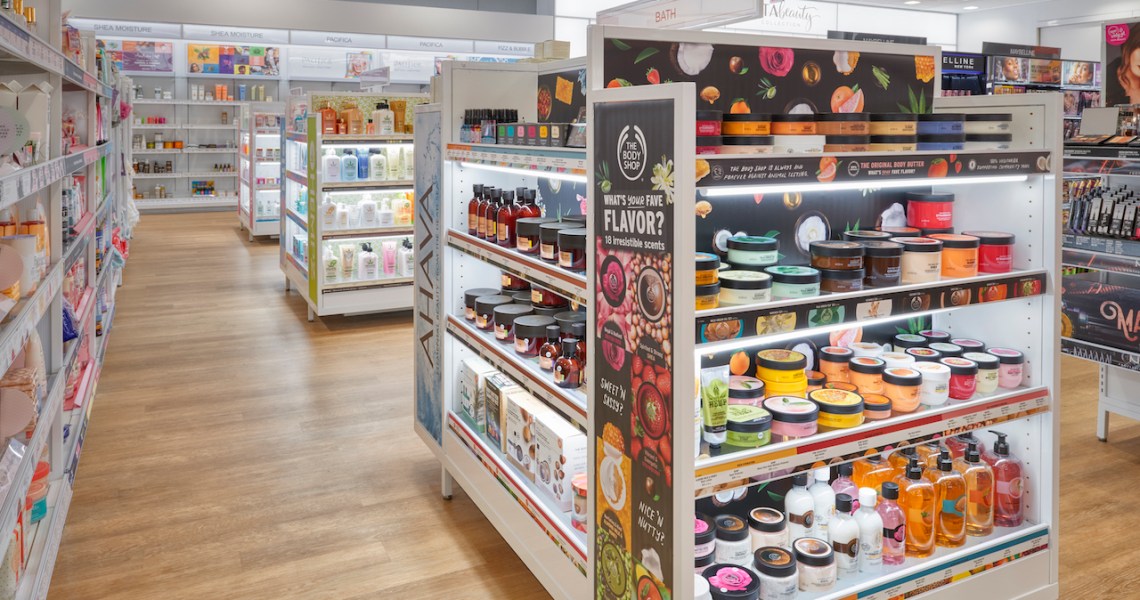Following its mid-March announcement that it was temporarily closing its 1,254 U.S. stores, but continuing to pay its store associates, Ulta said in a business update on Thursday that it was temporarily furloughing its associate support as of April 19.
The company cited the CARES Act and the ability for employees to file for unemployment while maintaining Ulta benefits as a way to “make sure these associates are supported,” said Ulta CEO Mary Dillon in the statement. Dillon is indefinitely forgoing her base salary and made a personal donation of $500,000 to the Ulta Beauty Associate Relief Program.
Ulta would not state the number of employees that would be affected by the furlough, but in a statement to Glossy, a spokesperson said, “Managerial associates at stores and salons, plus master and elite stylists, will not be furloughed. This decision was made with thoughtful consideration and was purposefully mobilized to ensure when the time is right to reopen, we can operationalize efficiently and effectively.”
Of course, Ulta is not alone in its hard, cost-cutting decision-making. Companies big and small have been badly hit by the Covid-19 pandemic and subsequent, economic fallout; layoffs and furloughs have followed. Sephora made the decision to lay off 3,000 of its store employees just last week.
For non-essential businesses like Ulta, baring the brunt of costly overhead, that is now unfortunately inactive, is an expense that it cannot bare.
“At the beginning, most companies had been looking to do what’s right, as long as what’s right didn’t cost them existential risk,” said Simeon Siegel, managing director and senior retail and e-commerce analyst at BMO Capital Markets. “The longer this goes on, companies need to do whatever they can to ensure there is a long-term and viable business. Stores are not bringing in revenues and that source of revenue is essentially indefinitely shut off. For all intents and purposes, Ulta is not an ongoing or fully operational company and the duration of this is putting pressure on its livability. Every single employee in these types of businesses is at risk for their livelihood.”
On March 17, Ulta, like many of its peers, withdrew guidance previously issued for fiscal 2020; some holdouts like Stitch Fix made that decision later in the cycle, just Wednesday. Ulta, for its part, has been overly communicative with business updates, which Siegel suggested was evident of the “moving target” all businesses are adjusting to.
“You are seeing more press releases and news updates from companies than ever before, and these strategically-placed external communications show what is likely happening inside those meetings. At this point, it doesn’t help anybody to look like they have a future financial plan; much like like two weeks ago, it’s hard to know what is ahead.”
Stephanie Wissink, equity analyst at Jefferies Financial Group, said for the last four weeks most companies have focused on “tactical tasks.”
“The exercises by management up until this point have been immediate and triage-driven: the health and safety of their teams, the understanding of risk management and shelter in place, and the distinction of non-essential and essential businesses, ” said Wissink. “My sense was that management was not in a space to think about big questions, but now that this environment has become more permanent, Ulta needs to look at the underlining trends that are being accelerated. What truths did they hold onto that may not be true anymore?”
For Ulta, looking at pre-existing trends that might have been bubbling up means less dollars spent on store support staff and infrastructure, as well developing a strategy less reliant on makeup; it also means paying more attention to content and marketing.
“In 2019, 12% of beauty sales in the U.S. happened online, and it had been expected to be 14% in 2020 and 18% in 2021. We are now in a situation where it could be up to 40% this year. If that happens, this fundamentally changes Ulta’s business,” said Wissink.
With this new set of information, companies like Ulta need to rejigger their approach from creating marketing and animations around getting shoppers in a car and driving to a store to make a purchase; instead, they should aim to inspire and transact seamlessly digitally. Much of Ulta’s marketing and site copy speaks to its skin-care products as a trend, using phrases like, “Find comfort in routines,” or “Nourish your self,” with a bevy of product attached. While this works for color cosmetics product, its a disparate way of speaking to tying skincare to health and wellness.
And with the understanding that customers are wearing less makeup, the decline of the U.S. color cosmetics market that has been going on for the better part of a year moves from a fizzling trend to a zero trend. Cosmetics made up 50% of Ulta’s sales in its last fiscal year.
“There is a new reality check. Shoppers won’t go back to that pre-cycle decline where they were buying 60 items for the Kim Kardashian effect. Ulta needs to think through this behavioral change,” said Wissink. “The last thing Ulta wants is for its shopper to buy the same thing over and over again, for their behavior to be hyper-predictable. The brands would love that, but Ulta wins when shoppers change their behavior and when Ulta can bring that immersive, playground experience from stores to online. Customers need companies to change with them. How Ulta takes that invitation will decide who wins in the long run.”




